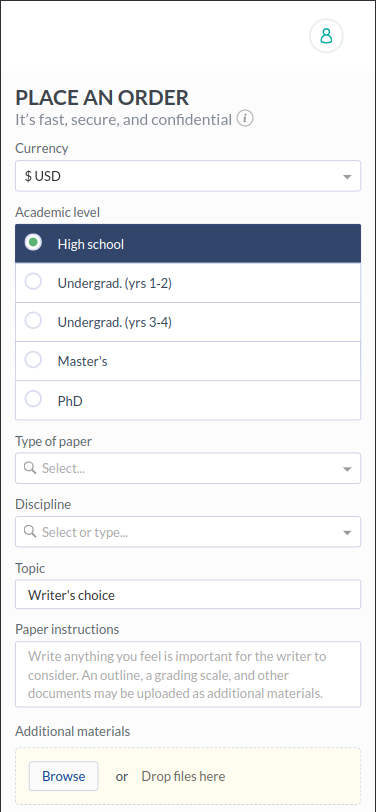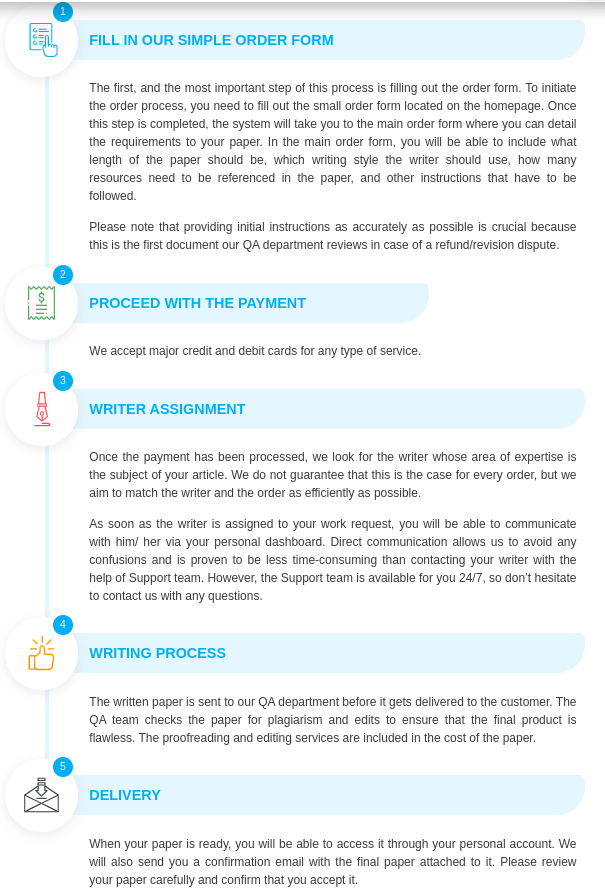NURS 6512 Week 7 iHuman Blood Pressure Check
Reason for encounter
Blood pressure check
History of Present illness
A 56-year old obese female with a PMH of hypothyroidism and a family history of hyperlipidemia, heart disease and hypertension presents for evaluation of elevated blood pressure (132/84mmHg). She was referred from a workplace health fair three weeks ago. She denies past incidences of elevated blood pressure or treatment for high blood pressure. She further denies headaches, visual disturbances, palpitations, increased thirst, weight gain, fevers, night sweats, tingling or numbness in upper or lower extremities.
CASE FINDINGS
- Sedentary lifestyle
- Vital signs within normal limits
- Elevated blood pressure on prior visit
- Negative cardiovascular exam
- Arcus senilis
- Asymptomatic
- Family history of heart disease
- Denies PMH of HTN
- PMH of hypothyroidism
- Consumes high salt diet
- Xanthoma
- Consumes high fat diet
- Obese BMI
CASE PROBLEM STATEMENT
The patient is a 56-year old obese female with a PMH of hypothyroidism who presents for a blood pressure recheck after attending a workplace health fair 3 weeks ago(BP reading was 132/74). She is asymptomatic and reports consuming a high-fat, high-salt diet, physical inactivity, and a family history of heart disease. She denies polydipsia, polyuria, polyphagia, chest pain and shortness of breath. Physical exam shows stable vital signs with BP 118/72, bilateral eye xanthoma, and arcus senilis. The remaining physical exam is unremarkable.
Subjective Data
General: denies night sweats, chills, fevers, generalized weakness, fatigue, increased or decreased appetite, weight loss/weight gain.
HEENT/Neck: denies dizziness, headaches, head trauma, loss of vision central or peripheral. Denies ringing or pain in ears, loss of hearing, or abnormal ear discharge. Denies loss of taste, difficulty or pain swallowing, ulcerations on tongue, sores, or cheeks. Last dental visit was 8 months ago. Denies loss of smell or recurrent nosebleeds. Denies pain with neck movement, swelling or lump in neck.
Cardiovascular: denies murmur history, chest pain, palpitations, doesn’t engage in sports or physical activities, denies murmur history, or swelling in face, upper or lower extremities.
Respiratory: denies cough or wheezing, exposure to secondhand smoke, exposure to influenza A or TB, denies shortness of breath (SOB) or difficulty breathing.
Gastrointestinal: denies issues with nausea, vomiting, constipation, diarrhea, changes in appetite, weight gain/weight loss, abdominal cramping, or abdominal pain. Denies greasy/foul smelling stools, dark/tarry stools.
Genitourinary: states urine is yellow, denies increased urinary frequency, pain or burning with urination, hesitancy, or urgency. Denies flank pain or lower back pain.
Musculoskeletal: patient is physically inactive, denies problems with range of motion in hands or large joints, denies problems with bending, standing, or reaching. Denies swelling or pain in neck, joints, back, upper or lower extremities.
Neurologic: denies stroke-like symptoms, loss of memory, loss of consciousness, dizziness, headaches, involuntary muscles movement and spasms or fainting.
Psychiatric: denies feeling anxious/depressed, sad or blue, denies thoughts of suicide, thoughts of self-harm/self-injury, auditory/visual hallucinations.
Endocrine: has hypothyroidism and takes levothyroxine. Denies weight loss/weight gain, heat/cold intolerance, increased thirst or increased urination.
Hematologic/Lymphatic: denies enlarged lymph nodes, lack of energy, anemia, spontaneous bleeding, spontaneous bruising, denies feeling chilly often, cold or blue lips.
Allergic/Immunologic: denies environmental, food or medication allergies.
Past Medical History: hypothyroidism
Hospitalizations/Surgeries: myomectomy 12 years ago. Denies hospitalizations.
Preventive Health: uptodate. Last dental visit was 8 months ago.
Medications: levothyroxine. Denies OTC/herbal medications
Allergies: denies environmental, food or medication allergies.
Social History: patient is physically inactive, consumes high-salt, high-fat diets. She loves Southern soul food. Takes 2-3 glasses of wine once a week with friends during weekly Wednesday dinner. Denies tobacco smoking, illicit/recreational drug use. Patient works as an insurance claim adjuster.
Family History:
Mother (77 years old) has PMH of hypothyroidism, uterine cancer, and fibroids.
Father (deceased at 66 years old) with PMH of atrial-fibrillation, heart disease, hypertension and hyperlipidemia.
Maternal grandfather with PMH of atrial-fibrillation
Objective Data
General: obese (BMI- 31.4), AOX4, well groomed, no respiratory distress or pain.
HEENT/Neck: Head: non-tender on percussion and palpation of maxillary and frontal sinuses, atraumatic, and normocephalic. Eyes: PERRLA, yellow, waxy appearing lesions above medial bilateral eyes, no evidence of intraocular bleeding or periorbital edema, light grey rings around the corneal edge bilaterally. Ears: no pain with pushing the tragus or pinna movement, bilaterally intact hearing for low, medium and high pitches. Tympanic membrane intact. Nose/Mouth/Throat: membranes are moist, no evidence of bleeding, pink & intact. No septum deviation, tonsillar exudates, halitosis or dental caries. No wounds or ulcerations on tongue, gums, cheeks, hard or soft palate.
Neck: soft & supple, trachea is midline, thyroid is symmetrical, no goiter or lumps, no carotid bruits, no pain with hyperflexion or hyperextension.
Cardiovascular: no jugular distension, HR 83 bpm, regular, normal heart sounds S1 & S2. No edema in upper or lower extremities, hands or face. No gallops, murmurs or rubs.
Chest/Respiratory: no skin dimpling in supine with arms above head, chest wall is symmetrical, clear breath sounds in lobes bilaterally, no use of accessory muscles or exaggerated movement of the abdomen. RR 18 bpm at rest.
Abdomen: soft & non-distended, no visible deformities, no lumps , masses or protruding tumors, inverted umbilicus, normoactive bowel sounds in all 4 quads, no rebound tenderness or palpable masses, no organomegally, fluid thrill or shifting dullness.
Genitourinary/Rectal: Deferred
Musculoskeletal: full range of motion in all joints, no edema in lower or upper extremities, Equal grips, strength and good tone, absence of edema, crepitus, tenderness and inflammation, no coordination or balance deficits. Negative for curvature of the spine, scoliosis or kyphosis.
Neurologic: AOX4 to place, person, situation and time. Able to distinguish hard, soft, sharp and blunt sensation on lower and upper extremities as well as cold and hot temperatures. Deep tendon reflexes intact, cranial nerves II-XII grossly intact, follows both simple and complex commands.
Skin: no sensory deficits, no evidence of recent trauma, skin color consistent with ethnicity, no evidence of nail clubbing or ridges, good skin turgor, skin is dry and intact.
Lymphatic: no pathologically enlarged lymph nodes.
Psychiatric: AOX4, good affect and mood, memory intact, speech is coherent with normal volume.
Management Plan
Diagnostic testing
- Lipid profile, free T4 and TSH, fasting blood glucose and HbA1C, ECG, renal function test and liver function test.
Rationale: to evaluate for metabolic syndrome (Su et al., 2021).
Medications (write out as a prescription)
- Continue levothyroxine as per current dosing
- Atorvastatin 20mg PO 24 hourly at bedtime
- Disp:30 tablets
- Refills:3
- Sig: take one tablet daily buy mouth at bedtime
Rationale: statins are the recommended first line therapy for the management of hyperlipidemia (Su et al., 2021).
Consults/Referrals
- Nutrition consult for dietary evaluation and management for calorie-controlled, heart-healthy meal plans (Su et al., 2021).
- Physical therapy consult to initiate safe physical activity in everyday routine.
- Cardiology consult to evaluate the patient’s ASCVD subclinical risk
Rationale: managing hyperlipidemia requires a collaborative effort as it involves lifestyle changes, pharmacological management ad regular monitoring (Su et al., 2021).
Patient Education
- You have been diagnosed with hyperlipidemia. Hyperlipidemia refers to elevated lipid (cholesterol) levels in blood that causes hardening and narrowing of blood vessels over time (Su et al., 2021). This increases your overall risk of heart disease, stroke, and a heart attack.
- Managing hyperlipidemia requires a combination of lifestyle change, medication with continuous monitoring. Therefore, you will be started on a drug called atorvastatin which is classified as a statin. This drug acts by reducing cholesterol production in the liver hence lowering the bad cholesterol and increasing good cholesterol (Su et al., 2021). Take all of your medications as prescribed and directed for good outcomes.
- Hyperlipidemia may by asymptomatic but can cause silent long-term damage.
- Lifestyle change including dietary modification and being physically active play a major role in the management of hyperlipidemia. Ismail, Redzuan & Wen (2023) recommend reducing the consumption of trans fats and saturated fats which can be found in fried foods, red meats, and baked foods. Increase fiber intake such as whole grains, vegetables, fruits, legumes, beans and grains. Limit the intake of processed foods and sugar, and drink enough water every day to stay hydrated.
- Smoking and alcohol worsen outcomes in hyperlipidemia by damaging blood vessels (Ismail, Redzuan & Wen, 2023). Therefore, limit alcohol intake and never smoke.
Start engaging in mild-moderate physical activity such as brisk walking for 20-30 minutes, 5 days every week, low-impact exercises including home workouts, swimming, and cycling (Su et al., 2021). Avoid prolonged sitting and consider stretching, standing or walking around every hour.
Rationale: according to Ismail, Redzuan & Wen (2023), education empowers the patient to take an active role in self-care and long-term management by improving her understanding of hyperlipidemia, promoting medication adherence, lifestyle modification and reducing the risk of complications.
Follow up (interval, symptom specific to prompt a return visit sooner)
- Follow up with this clinic or your primary healthcare provider in 6 weeks to evaluate for your response to treatment with a lipid profile, liver function, and thyroid function tests.
- Follow up with your primary care provider (PCP) every 6 months to evaluate progress and need for medication adjustments.
- Seek immediate care if you experience symptoms such as chest pain, chest tightness, sudden-onset shortness of breath (SOB) on exertion, unexplained weight gain, leg pain/swelling, dizziness or fatigue.
References
Ismail, F. F., Redzuan, A. M., & Wen, C. W. (2023). Patient-centered education in dyslipidemia management: a systematic review. Asian Biomedicine: Research, Reviews and News, 16(5), 214. https://doi.org/10.2478/abm-2022-0026
Su, L., Mittal, R., Ramgobin, D., Jain, R., & Jain, R. (2021). Current management guidelines on hyperlipidemia: the silent killer. Journal of lipids, 2021(1), 9883352. https://doi.org/10.1155/2021/9883352
Our expert nursing writers can help with NURS 6512 Week 7 iHuman Blood Pressure Check, whatsapp us via the contact provided or place your order here




